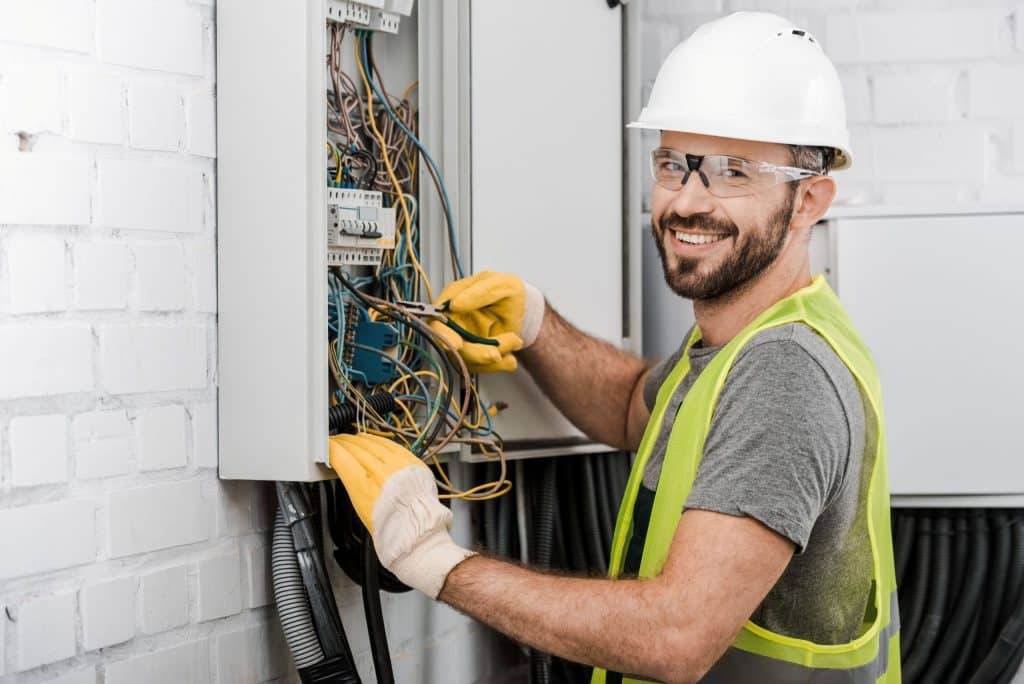Electrical emergencies happen unexpectedly and pose serious risks, including fires, shocks, and even fatalities. As a homeowner, knowing how to respond quickly and safely can prevent extensive damage and keep your family safe. This guide covers common electrical emergencies and the steps you should take to handle them effectively.
Identifying an Electrical Emergency
A burning smell or visible smoke often indicates overheating wires or an impending electrical fire. Sparks or arcing from outlets or appliances suggest a dangerous fault in the system.
Frequent circuit breaker trips may signal an overloaded circuit or a short circuit. Meanwhile, while exposed or damaged wiring increases the risk of shocks or fires.
If your property loses power but your neighbors still have electricity, the issue likely lies within your electrical system. Any of these scenarios require immediate attention to prevent further hazards.
What to Do Immediately in an Electrical Emergency
Below are the common electrical emergencies and what you can do in order to address them.
1. Electrical Fire
If an electrical fire breaks out, never use water to extinguish it, as water conducts electricity and can worsen the situation. Instead, use a Class C fire extinguisher designed for electrical fires.
If it’s safe to do so, cut off the power at the main breaker box to stop the source of the fire. Evacuate the area immediately and call 911 if the fire spreads.
Once the situation is under control, contact a licensed electrical company to inspect and repair any damaged wiring or components to prevent future incidents. Choose one that’s fully licensed, 24-hour service, upfront pricing, and lifetime guarantee for your peace of mind.
2. Power Outage
A sudden power loss can be caused by a blown fuse, a tripped breaker, or an issue with your local grid. The first step is to check if your neighbors have power. If they do, the issue may be in your home.
Inspect your circuit breaker panel and reset tripped breakers. If the problem persists, contact your local electrical company to check for external faults.
3. Frequent Circuit Breaker Trips
If your breaker trips often, it could indicate an overloaded circuit or faulty wiring. Start by unplugging some devices to reduce the load.
If the problem continues, consult an electrician to upgrade your electrical panel or wiring to manage your home’s power demands safely.
4. Sparking Outlets or Switches
While minor static-like sparks when plugging in a device are normal, large or frequent sparks are dangerous. If you see significant sparking, stop using the outlet or switch immediately. Turn off the area’s circuit breaker and call an electrician to assess and replace any faulty wiring or outlets.
5. Exposed Wires
Damaged or frayed wires can cause shocks or fires. If you encounter exposed wiring, avoid touching it, even if the power seems off. Turn off the electricity at the main panel and cover the wires with electrical tape as a temporary fix until an electrical professional can make permanent repairs.
6. Electrical Shock
If someone is electrocuted, quick action is crucial. Don’t touch the person while they are still in contact with the electrical source. To ensure safety, either cut the power at the breaker or use an insulated object to disconnect them from the source.Call 911 or emergency hotline immediately and administer CPR if necessary.
7. Flooding Near Electrical Systems
Water and electricity are a deadly combination. If flooding occurs near electrical outlets, appliances, or wiring, avoid stepping in the water. Shut off the main power immediately and have an electrician inspect the system before restoring electricity to prevent further hazards.
8. Burning Smell from Outlets or Switches
A burning odor often indicates overheating wires or a failing electrical component. If you notice this smell, turn off the power to the affected area at the breaker panel and unplug any connected devices. Contact a licensed and experienced electrician promptly to inspect and repair the issue before using the outlet or switch again.

Creating an Emergency Preparedness Plan
A well-prepared home is a safer and happier home. Being ready for an electrical emergency can protect your family and give you peace of mind. Start by familiarizing yourself with your breaker box and labeling each circuit for quick identification during an emergency.
Keep emergency contact numbers, including your local electrical company, fire department, and utility provider, in an easily accessible location, like the fridge or in a family emergency binder.
To further create a safe and happy home, install smoke detectors near bedrooms and electrical panels to provide early warnings in case of a fire. Regularly test these devices to ensure they’re working properly.
Educate all household members on how to respond to electrical hazards, ensuring everyone knows how to shut off the power and use a fire extinguisher safely. Practicing these steps together not only keeps your home secure but also strengthens your family’s confidence and teamwork.
Bottom Line
Electrical emergencies require swift and cautious action to prevent injuries and property damage. While some issues can be addressed by resetting a breaker or unplugging a device, others demand professional intervention. Always prioritize safety.
When in doubt, shut off the power and call a licensed electrician or your local electrical company for assistance. By staying informed and prepared, you can protect your home from the dangers of electrical hazards.
